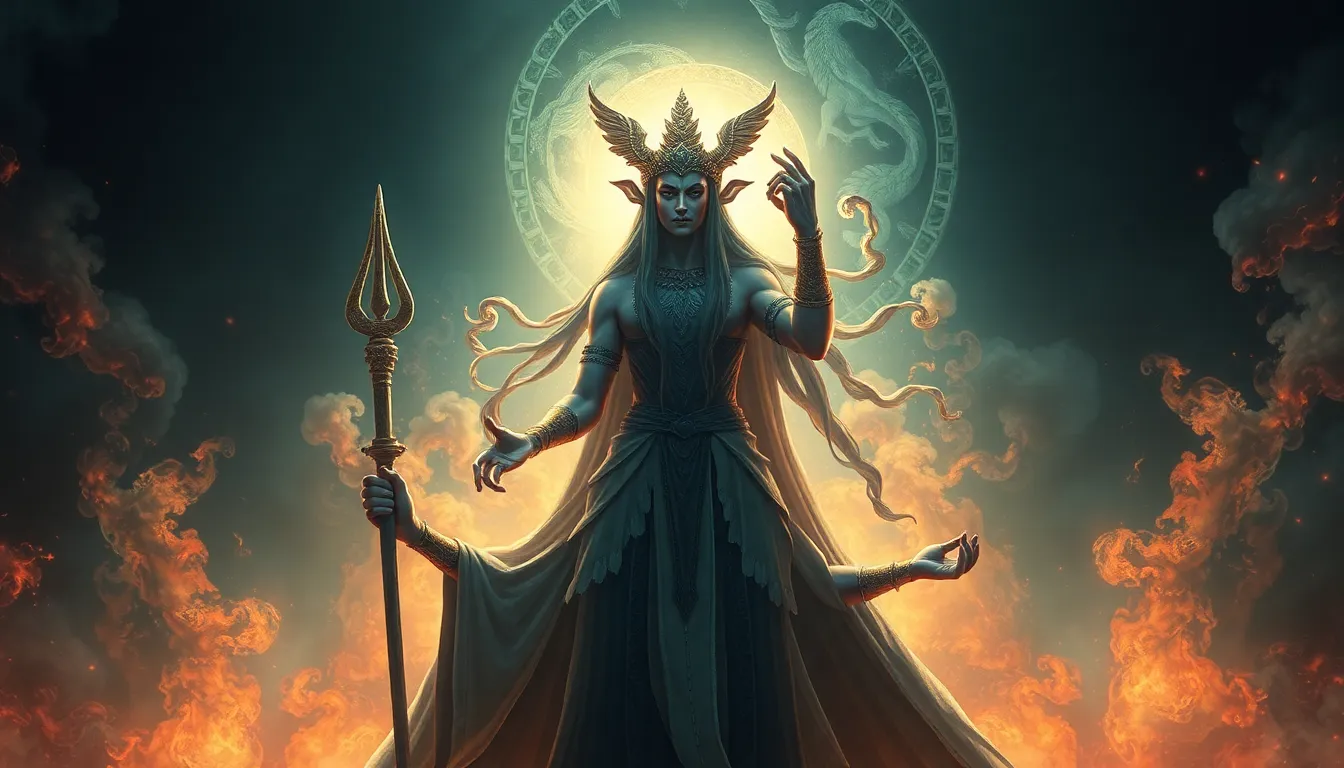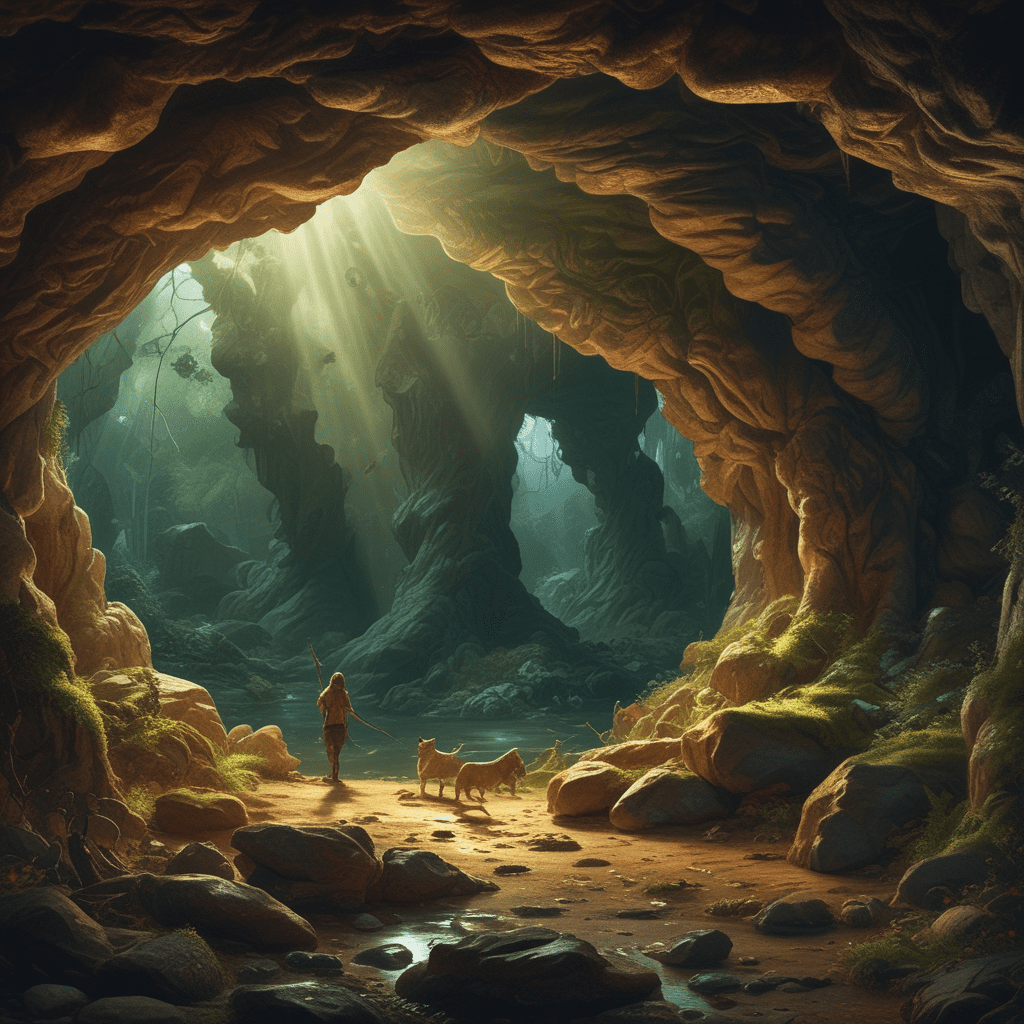The Most Unusual Powers of Ancient Deities: Myths That Surprise
Introduction to Ancient Deities and Their Myths
Ancient mythology serves as a fascinating lens through which we can explore the beliefs, practices, and values of different cultures throughout history. These stories have endured for centuries, shaping societal norms and offering explanations for the natural world. Deities, central figures in these myths, often embody the hopes and fears of humanity, acting as intermediaries between the mortal realm and the divine.
From the sun gods of ancient Egypt to the trickster figures of Native American lore, each culture has its own pantheon of gods and goddesses, each with unique narratives and attributes. Understanding these deities and their unusual powers provides insight into the complexities of human belief and the ways in which ancient societies sought to explain the universe around them.
The Concept of Divine Power: Beyond the Obvious
In mythology, divine powers are often understood through the lens of strength, wisdom, and authority. However, many ancient deities possess unusual powers that defy these traditional attributes. These powers can be enigmatic, serving to challenge human understanding and reflect the multifaceted nature of existence.
- Unusual Powers: Powers that don’t conform to typical divine attributes.
- Common Attributes: Strength, wisdom, and control over natural elements.
This exploration reveals how ancient cultures valued not only the obvious strengths of their gods but also the more subtle and surprising aspects of their powers, which often resonated deeply with human experiences and emotions.
The Power of Transformation: Deities Who Change Form
Transformation is a prevalent theme in mythology, with many gods and goddesses possessing the ability to change their forms at will. This power often symbolizes adaptability and the fluidity of identity.
One of the most notable examples is Zeus from Greek mythology, who frequently transformed into various beings to interact with mortals, often leading to unexpected consequences. His transformations serve as a reminder of the unpredictable nature of desire and power.
Other examples include:
- Shiva in Hindu mythology, who embodies both creator and destroyer.
- Odin from Norse mythology, who often disguises himself for knowledge and insight.
The cultural implications of transformation reflect the belief that nothing is permanent, and that change is an integral part of life.
The Power of Nature: Deities with Control Over Unseen Forces
Many ancient deities are associated with nature and its powerful, often unseen forces. These gods and goddesses illustrate humanity’s reverence for natural phenomena.
For example, Poseidon, the Greek god of the sea, wields power over storms and tides, embodying the unpredictable nature of water. Similarly, the Inuit goddess Sedna governs marine animals and the balance of life in the ocean.
Other notable deities include:
- Thor, who controls thunder and lightning.
- Tezcatlipoca, the Aztec god of night and sorcery, representing the darker aspects of nature.
These associations reveal the deep connection ancient cultures had with their environments and the respect they held for the powers that governed them.
The Power of Emotion: Deities Influencing Human Feelings
Deities often wield the power to influence human emotions, shaping relationships and societal norms. These gods and goddesses personify various aspects of love, desire, and passion.
Eros and Aphrodite from Greek mythology are prime examples, representing love’s chaotic and transformative nature. Their powers are not merely about romantic love but also encompass the broader spectrum of human emotions.
Other deities associated with emotions include:
- Freya, the Norse goddess of love and fertility.
- Hecate, who governs the emotional realms of magic and the night.
The influence of these deities on human feelings highlights the interconnectedness of love, desire, and societal dynamics.
The Power of Knowledge: Deities of Secrets and Hidden Wisdom
Knowledge in mythology often carries a dual significance, representing both a gift and a burden. Deities such as Thoth in Egyptian mythology and Hermes in Greek mythology are revered as gods of knowledge, wisdom, and communication.
These gods possess the ability to reveal or conceal knowledge, reflecting the complexity of understanding and the consequences of enlightenment.
Key aspects include:
- Thoth: God of writing, knowledge, and wisdom.
- Hermes: Messenger of the gods, guiding souls and conveying secrets.
Their stories illustrate the importance of knowledge in shaping human destiny and the moral dilemmas that come with it.
The Power of Chaos: Deities Embracing Disorder and Change
Chaos is often viewed negatively, yet many deities embrace this concept as essential for creation and transformation. Chaos itself, in Greek mythology, is considered the primordial void from which all things arise.
Eris, the goddess of discord, plays a crucial role in initiating conflict and change, demonstrating that chaos can lead to new beginnings and opportunities.
Other chaotic deities include:
- Set, the Egyptian god of chaos and storms.
- Typhon, a monstrous deity symbolizing chaos and destruction.
These figures remind us that disorder is a necessary component of existence, providing balance in the cycle of life and death.
The Power of Time: Deities Who Govern Temporal Realities
The concept of time is another fascinating aspect of mythology, with deities like Chronos and Kairos personifying its various dimensions. Chronos represents chronological time, whereas Kairos embodies the opportune moment, highlighting the nuances of temporal existence.
Their attributes reflect humanity’s struggle to comprehend the passage of time and its impact on life.
- Chronos: Often depicted as an old man, representing the relentless flow of time.
- Kairos: Symbolizes the right moment, suggesting that timing is crucial in human affairs.
These deities offer insight into how ancient cultures understood time and its significance in shaping human experience.
The Power of the Mundane: Everyday Deities with Surprising Abilities
Not all deities are grand and powerful; many govern the mundane aspects of life, embodying qualities that reflect daily human experiences. These everyday deities often have surprising abilities that influence health, fertility, and domesticity.
For example, Hestia, the Greek goddess of the hearth, symbolizes home and family, while Ganesha in Hinduism represents the removal of obstacles in daily life.
Other examples include:
- Brigid, the Celtic goddess of healing and poetry.
- Lares, the Roman household gods protecting the home.
The cultural importance of these deities emphasizes the value placed on everyday life and the divine influence present in ordinary activities.
Conclusion: The Enduring Legacy of Unusual Divine Powers
The myths surrounding ancient deities with unusual powers continue to resonate in modern culture, influencing our understanding of divinity and power. These stories challenge conventional notions of strength and wisdom, prompting reflection on the complexities of existence.
As we explore these myths, we uncover the rich tapestry of human experience, revealing how ancient beliefs continue to shape our perceptions of the world today. The legacy of these unusual divine powers serves as a reminder of the enduring nature of mythology and its role in human culture.




